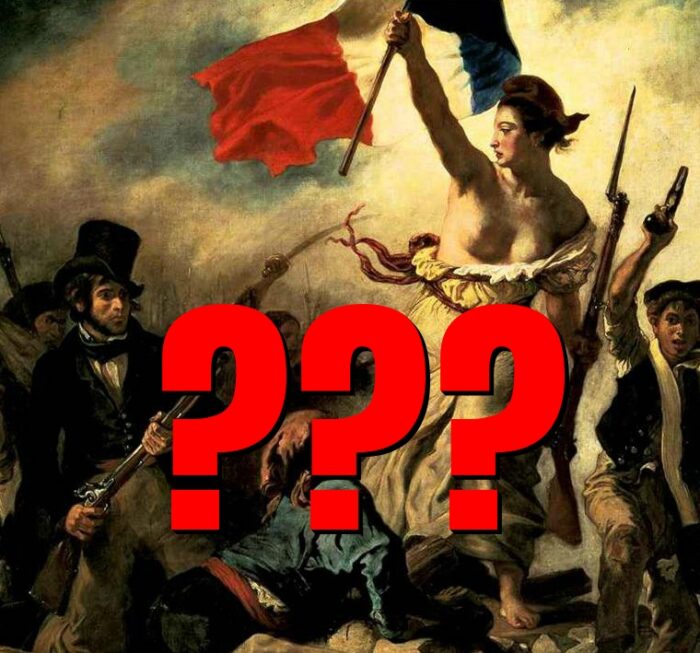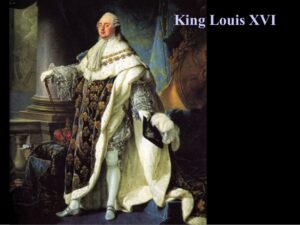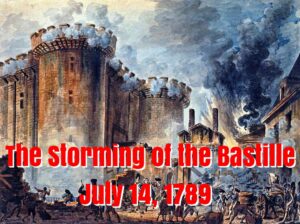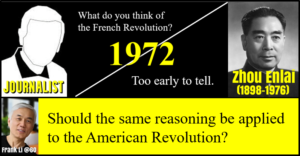Nobody can truly understand contemporary France without truly understanding the French Revolution.
1. What is the French Revolution?
Below is an excerpt from Wikipedia – French Revolution.
The French Revolution (French: Révolution française [ʁevɔlysjɔ̃ fʁɑ̃sɛːz]) was a period of social and political upheaval in France and its colonies beginning in 1789 and ending in 1799. The Revolution overthrew the monarchy; established a republic; catalyzed violent periods of political turmoil; and finally culminated in a dictatorship under Napoleon, who brought many of the revolution’s principles to areas he conquered in Western Europe and beyond. Inspired by liberal and radical ideas such as equality before the law, the Revolution influenced the decline of absolute monarchies while replacing them with republics and liberal democracies.[1]
2. France and the American Revolution
Louis XVI strongly supported the American Revolution for two main reasons:
- The traditional French hatred against the British.
- The conflict of interests between the French Empire and the British Empire, especially in North America.
How strongly did he support America?
Almost decisively. Two highlights:
- Louis XVI was the only European monarch who recognized America before the Siege of Yorktown, which was a decisive turning point for America in the war.
- Even the treaty to conclude the American Revolutionary War was signed in Paris (Treaty of Paris – 1783).
3. Linking the American Revolution with the French Revolution
Unfortunately for France, its support of the American Revolution cost the country so much that France was nearly broke by 1783.
Together with some other factors causing misery in life (e.g., over-taxation and the extravagant lifestyle of the Royal family), Parisians finally had it – They stormed the Bastille on July 14, 1789 (Storming of the Bastille), thus starting the revolution.
4. What was the outcome of the French Revolution?
Au revoir, monarchy?
No – An emperor replaced the king!
Napoleon, a revolution leader, not only named himself the emperor but also acted like one by waging wars against France’s many neighbors, only to be totally defeated in the end (Battle of Waterloo).
After that, it was France in the long 19th century (1815-1914).
5. Discussion
Below is an excerpt from Zhou Enlai on the Effects of the French Revolution: “Too Early to Say”.
In 1972, Chinese premier Zhou Enlai was asked about the impact of the French Revolution. “Too early to say,” he replied. Given that the French Revolution of 1789 had occurred nearly 200 years before, Zhou Enlai was expressing the long view of history in a very witty and Oscar Wildean way. News of this quote flew quickly around the chattering classes in the west, and it was soon used as evidence that the Chinese (especially Chinese intellectuals and leaders) took the long view of things, that they were a patient civilization, and that, when they thought about the future, it was hundreds of years distant.
Can the same thing be said about the American Revolution – “too early to say”?
Yes!
Please read and judge for yourself: What is the American Revolution, anyway?
Everything is relative – The best way to understand both revolutions is to compare them, which is what I will do in my next post.
6. Closing
The French Revolution was a big event in human history. So, it is very important for us to understand it, truly.
Now, please sit back and enjoy the video below.





